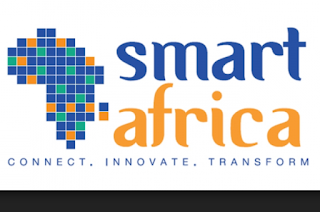Smart Africa Launches Africa Wide Coordinated Response to the Coronavirus Pandemic
[ad_1]
Smart Africa, a bold and innovative commitment from African Heads of State and Government to accelerate sustainable socioeconomic development , has launched a continent-wide technology based coordinated impact response to the coronavirus (COVID-19) pandemic for Africa.
Kigali,Rwanda., March 27, 2020 – Smart Africa has launched a continent-wide technology based coordinated impact response to the coronavirus (COVID-19) pandemic for Africa. This response is aimed at bringing together the 30 member states under the Smart Africa Alliance and the 40 private sector members of the Alliance to coordinate efforts to stem the pandemic in Africa.
In order to tackle this unprecedented crisis, by its magnitude and its impact on society, the Smart Africa Secretariat seeks to support digital health services projects that aim at improving and accelerating the African governments response to the challenges of the Coronavirus (COVID-19) pandemic.
The projects under the initiative are aimed at assisting African countries to:
- Assess individual risk and guide decision making;
- Assist African populations in finding nearby testing sites;
- Provide reliable updates and alerts from public health authorities;
- Report on community status;
- Track and report transmissions.
Moreover, to ensure that the efforts are relevant to the African context, critical technological parameters are considered as below:
- A solution available via web, application (iOS, Android, Windows), USSD, and other messaging platforms;
- Data collection from diverse points such as individual smartphones or terminals at public facilities (e.g. testing terminals at border controls, testing terminals by medical authorities, etc.);
- A reporting dashboard accessible to the admin with relevant data – specific rights depending on the status of the admin (e.g. public authorities, medical authorities) will be established;
- Anonymized data (no personal information including name, ID, address recorded on the system) generated by use of the solution can be published in real-time through a database accessible with an API and map interface on a public website for public health authorities to monitor;
- Reliably informative content available in local languages in various formats (written – vocal with Interactive Voice Recognition technology) – e.g. prevention practices, isolation practices, closest health facilities, additional one-on-on support, etc.;
- Assessment and guidance compliance to the World Health Organization (“WHO”), national and local public health guidelines and include exposures, symptoms of illness, and underlying health status.
“There are numerous international interventions to the coronavirus pandemic but so far very few that are relevant to the immediate African context. We are bringing a credible and coordinated technology based African response which must go beyond our 30 member countries to the entirety of the African continent. The aim is to save lives and we must all do our part,” said Mr. Lacina Koné, Director General of Smart Africa.
The response will be initiated through a call for proposals which will involve numerous stakeholders across Africa. Once initiated the response by governments to the pandemic is expected to be coordinated, efficient and to save lives.
About Smart Africa
SMART Africa is a bold and innovative commitment from African Heads of State and Government to accelerate sustainable socioeconomic development on the continent, ushering Africa into a knowledge economy through affordable access to Broadband and usage of Information and Communications Technologies.
The Transform Africa Summit held in Kigali, Rwanda on 28th-31st October 2013 culminated in the adoption of the Smart Africa Manifesto document by seven (7) African Heads of States (Rwanda, Kenya, Uganda, South Sudan, Mali, Gabon, Burkina Faso) in which they committed to provide leadership in accelerating socio-economic development through ICT’s.

